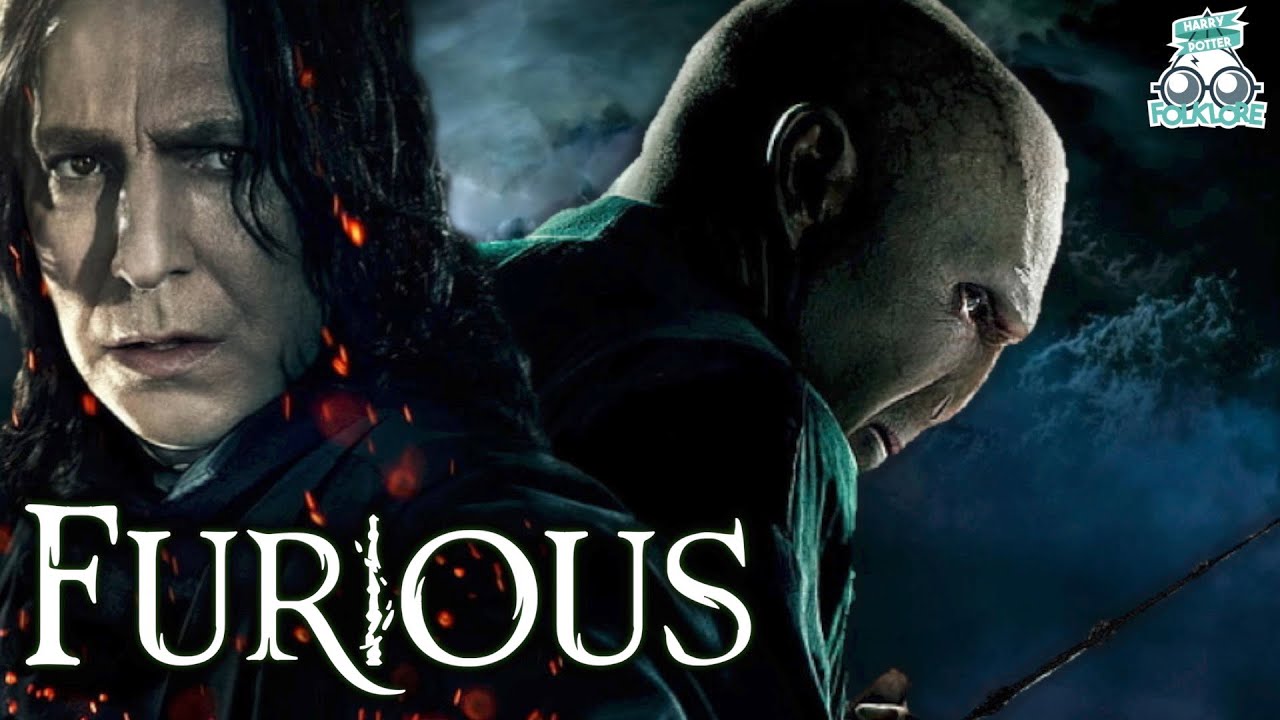Why It Angered Voldemort To Kill Snape
Unleash Your Creative Genius with MuseMind: Your AI-Powered Content Creation Copilot. Try now! 🚀
In the vast expanse of the wizarding world, where spells wield unimaginable power and destinies intermingle, one pivotal moment stands out — Severus Snape's encounter with the finality of his destiny. But this isn't just about the Elder Wand or the mystical intricacies woven into the narrative; it's a dive into the psyche of Lord Voldemort and his unconventional approach to wielding magic.
The Enigma of Voldemort's Perception of MagicVoldemort, the epitome of darkness, embraced magic with fervor, seeing it as the ultimate gift. For him, wielding a wand meant embodying worthiness for the magic it channeled. However, his connection with magic was unlike that of typical witches and wizards. He found joy in the suffering of others, relishing the swift extinguishing of life with a flick of his wand. But here lies the paradox: despite his ruthless demeanor, Voldemort wasn't entirely devoid of certain emotions or considerations for others' well-being.
Contrary to common belief, Voldemort did care for the health and usefulness of his loyal followers. Severus Snape, in particular, stood as a beacon of loyalty and efficiency in Voldemort's eyes. Snape's pivotal role in warning Voldemort about the prophecy and his consistent service earned him deep respect from the Dark Lord.
Snape's Dual Persona: Loyalty and DarknessSnape's allegiance, stemming from his affection for Lily Potter, led him down a complex path. Despite his bravery, Snape wasn't a saint. He committed deeds akin to other Death Eaters. However, his unwavering loyalty and significant contributions, including Dumbledore's demise, secured his place in Voldemort's inner circle.
However, a crucial turn of events demanded Snape's demise for Voldemort to claim mastery over the Elder Wand. Despite initial attempts to avoid this fate, Voldemort's resolve solidified - Snape had to die.
The Complexity of Snape's EndThe Elder Wand's history and its allegiance were not Voldemort's only considerations in this momentous event. He recognized that employing the Killing Curse might rebound, as it had in the past. However, it wasn't just about the wand; Voldemort's view of Snape played a pivotal role. He didn't perceive Snape as a mere victim but an unavoidable sacrifice.
The method of Snape's demise reflected Voldemort's peculiar sentiments. In the movie, the Elder Wand slit Snape's throat, a contradiction to its nature. In the book, Nagini, a vessel of Voldemort's soul, executed the act. Voldemort, surprisingly, expressed regret and acknowledged Snape's loyalty, granting him a conscious and deliberate death.
Unveiling Voldemort's Unconventional ChoicesVoldemort's decision to end Snape's life without the typical killing curse was a departure from his usual callousness. This deliberate act symbolized a rare moment where Voldemort acknowledged and respected Snape's service, marking his demise with significance rather than casualness.
In essence, Voldemort's choice to forgo the traditional method of death for Snape encompassed multifaceted considerations, from wand allegiance to a deep understanding of Snape's value and loyalty.
Conclusion: A Deeper Understanding of a Dark Tale
Exploring the intricacies of Snape's demise at Voldemort's hand reveals layers of complexity. It wasn't merely a matter of wand mastery or an execution of loyalty but a poignant depiction of Voldemort's unconventional approach to wielding power and his occasional acknowledgment of respect and gratitude.
In this mystical saga, where life and death intertwine, Snape's final moments become an enigmatic testament to the depths of darkness and the occasional flickers of unexpected sentiment within a realm governed by magic and unpredictability.

Related Recaps
- New 2023 Honda CT125 Hunter Cub, Sounds, New Upgrade, Price,
- He Chose to Die but Not Leave Mom
- Donald Trump Says President Biden Is Leading U.S. To Oblivion | Trump Speech | USA News | CPCA 2023
- What if Isagi Had A Perfect Copy Weapon The Movie [Blue Lock Theory]
- 'Outright victory at local election a STRETCH' says Sir Vince Cable